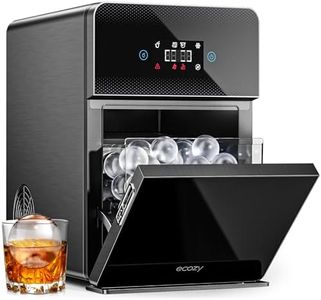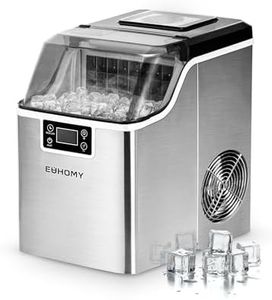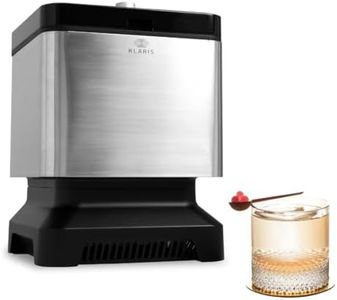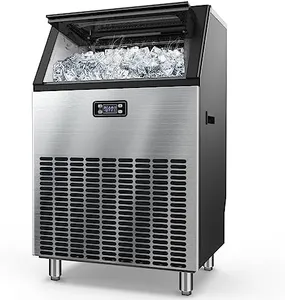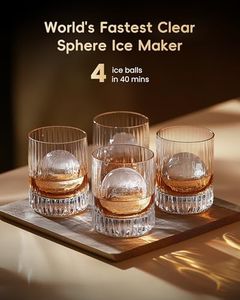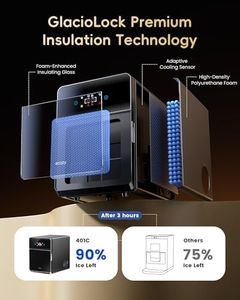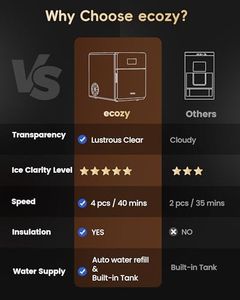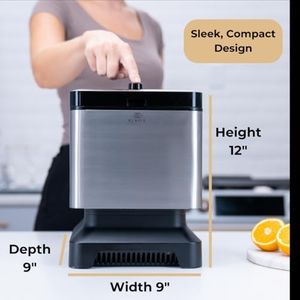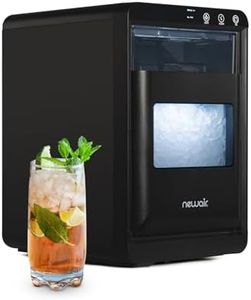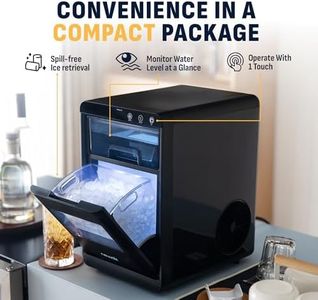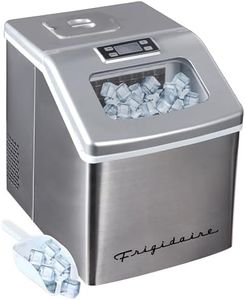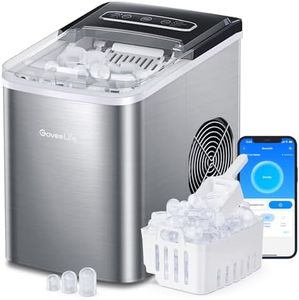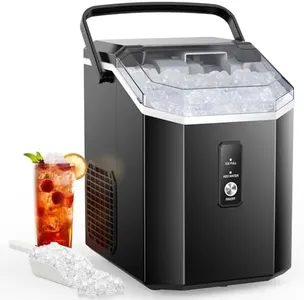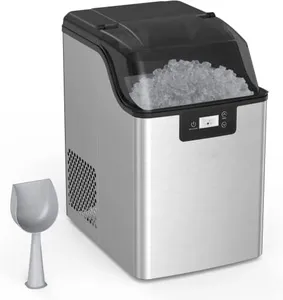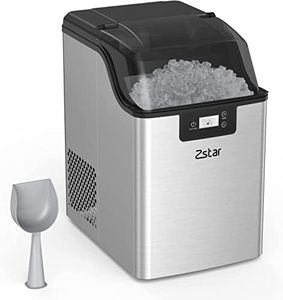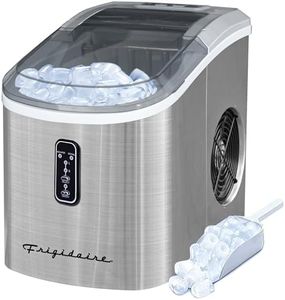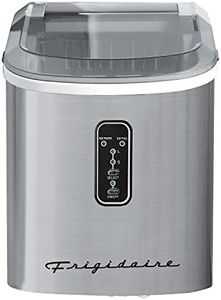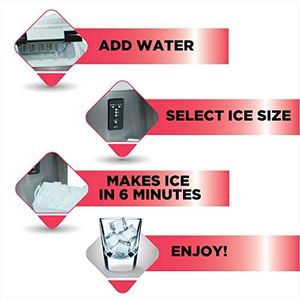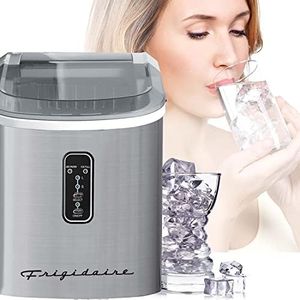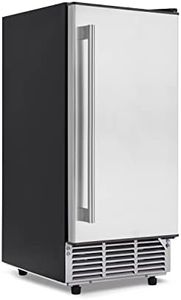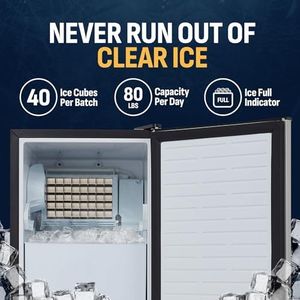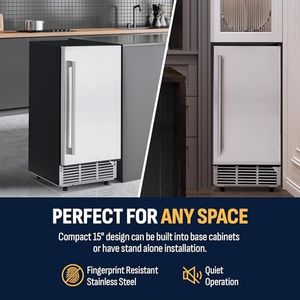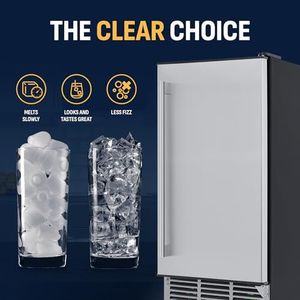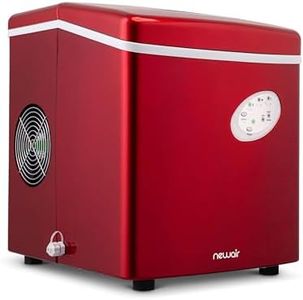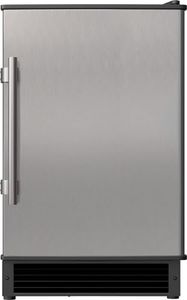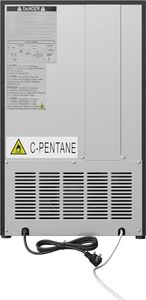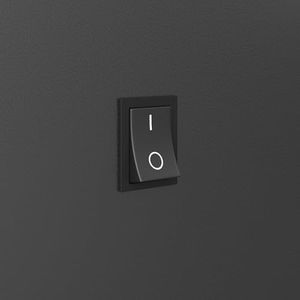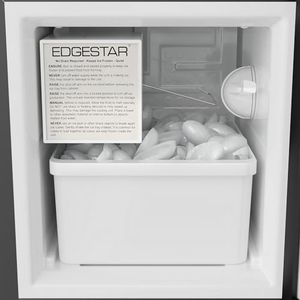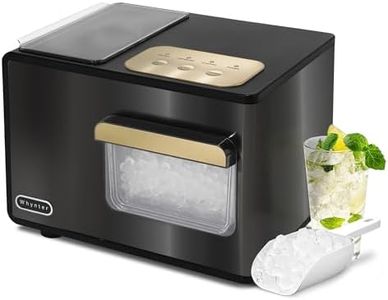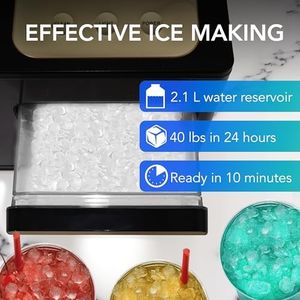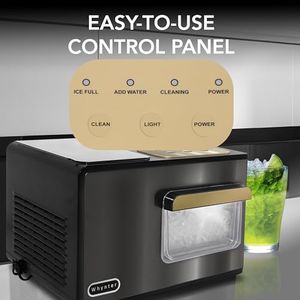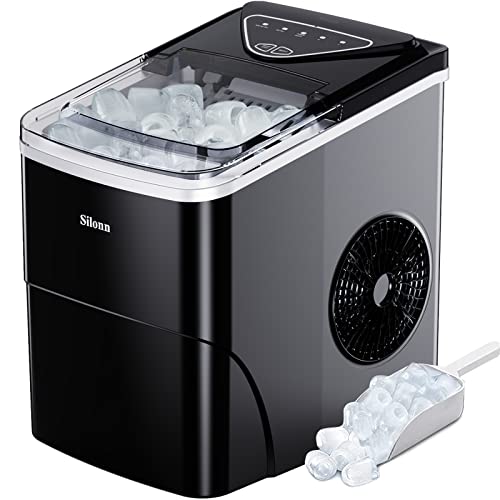10 Best Clear Ice Maker 2025 in the United States
Winner
ecozy 2" Clear Ice Ball Maker with CrystalFlux Technology, 4 pcs in 40 Mins, 144 pcs/Day, Sphere Ice Maker with Enhanced Insulation, Automatic Water Supply, Self-Cleaning for Whiskey & Bourbon
The ecozy 2" Clear Ice Ball Maker uses CrystalFlux technology to produce ultra-transparent ice balls with minimal air bubbles, offering slow-melting ice that keeps your drinks chilled without dilution. This is ideal for whiskey and bourbon enthusiasts who want to maintain the flavor of their drinks. Impressively, the device produces four clear ice spheres in just 40 minutes, which is relatively fast, making it perfect for gatherings.
Most important from
442 reviews
EUHOMY Ice Cube Maker Machine Countertop, 2 Ways to Add Water, 45Lbs/Day 24 Pcs Ready in 13 Mins, Self-Cleaning Portable Compact, with Ice Scoop & Basket, Perfect for Home/Kitchen/Office/Bar
The Euhomy Ice Cube Maker Machine stands out for its impressive ice production capacity of 45 pounds per day and the ability to make 24 ice cubes in just 13 to 18 minutes, making it suitable for home, kitchen, office, or bar use. Its compact and portable design, with dimensions of 14.2 x 9.9 x 14.6 inches, ensures it doesn't take up too much space on your countertop.
Most important from
2130 reviews
Klaris Clear Ice Maker - 4 Large, 2" Crystal Clear Ice Cubes for Craft Cocktails, Whiskey & Bourbon | Sleek, Compact Counterop Ice Maker | Stainless Steel Shell | Reusable Ice Tray | Delayed Start
The Klaris Clear Ice Maker is designed for those who appreciate high-quality, crystal-clear ice cubes for their beverages. It produces 4 large 2-inch ice cubes that are free from impurities and air bubbles, making them ideal for whiskey, cocktails, and other drinks. The ice cubes melt slower than regular ice, helping to preserve the flavor of your drinks longer.
Most important from
36 reviews
Top 10 Best Clear Ice Maker 2025 in the United States
Winner
9.8 score
ecozy 2" Clear Ice Ball Maker with CrystalFlux Technology, 4 pcs in 40 Mins, 144 pcs/Day, Sphere Ice Maker with Enhanced Insulation, Automatic Water Supply, Self-Cleaning for Whiskey & Bourbon
ecozy 2" Clear Ice Ball Maker with CrystalFlux Technology, 4 pcs in 40 Mins, 144 pcs/Day, Sphere Ice Maker with Enhanced Insulation, Automatic Water Supply, Self-Cleaning for Whiskey & Bourbon
Chosen by 1434 this week
EUHOMY Ice Cube Maker Machine Countertop, 2 Ways to Add Water, 45Lbs/Day 24 Pcs Ready in 13 Mins, Self-Cleaning Portable Compact, with Ice Scoop & Basket, Perfect for Home/Kitchen/Office/Bar
EUHOMY Ice Cube Maker Machine Countertop, 2 Ways to Add Water, 45Lbs/Day 24 Pcs Ready in 13 Mins, Self-Cleaning Portable Compact, with Ice Scoop & Basket, Perfect for Home/Kitchen/Office/Bar
Klaris Clear Ice Maker - 4 Large, 2" Crystal Clear Ice Cubes for Craft Cocktails, Whiskey & Bourbon | Sleek, Compact Counterop Ice Maker | Stainless Steel Shell | Reusable Ice Tray | Delayed Start
Klaris Clear Ice Maker - 4 Large, 2" Crystal Clear Ice Cubes for Craft Cocktails, Whiskey & Bourbon | Sleek, Compact Counterop Ice Maker | Stainless Steel Shell | Reusable Ice Tray | Delayed Start
FRIGIDAIRE EFIC452-SS 40 Lbs Extra Large Clear Maker, Stainless Steel, Makes Square Ice
FRIGIDAIRE EFIC452-SS 40 Lbs Extra Large Clear Maker, Stainless Steel, Makes Square Ice
Newair 15" Undercounter Clear Ice Maker 80 lbs. Daily Ice | Self-Cleaning Function, Clear Ice Cube Machine | Built-in or Freestanding in Stainless Steel, LED Controls, Ice Thickness Controls
Newair 15" Undercounter Clear Ice Maker 80 lbs. Daily Ice | Self-Cleaning Function, Clear Ice Cube Machine | Built-in or Freestanding in Stainless Steel, LED Controls, Ice Thickness Controls
Our technology thoroughly searches through the online shopping world, reviewing hundreds of sites. We then process and analyze this information, updating in real-time to bring you the latest top-rated products. This way, you always get the best and most current options available.

